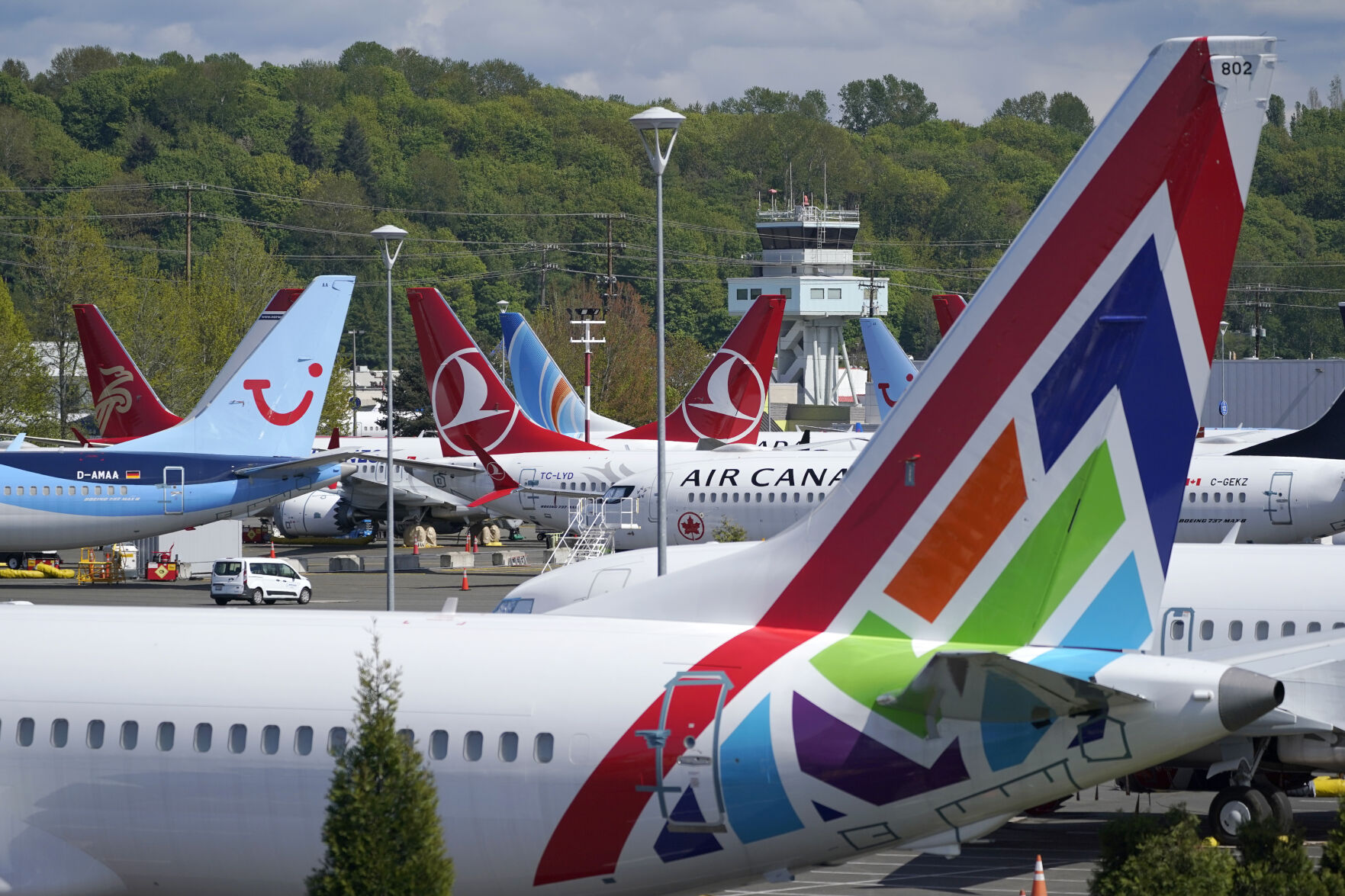Boeing reported a $1.64 billion loss for the third quarter today as it delivered fewer copies of its best-selling plane and sunk more money into building two new Air Force One presidential jets.
The aircraft maker lowered its forecast of 737 Max production to between 375 and 400 planes this year, down from a previous estimate of 400 to 450.
Boeing said production and deliveries of 737s will be slowed as it does inspections and additional work to fix a pressure-sealing section of the planes. Boeing and supplier Spirit AeroSystems are working to correct rivet holes that were not drilled properly in the fuselage.
Boeing reported a $482 million loss in the quarter on a contract with the Air Force to build two new presidential jets because of higher estimated manufacturing costs. The company also lost $315 million on a satellite contract.
The company, based in Arlington, Va., said that excluding special items it lost $3.26 per share in the quarter. Revenue rose 13% to $18.10 billion.
Analysts expected the company to lose $3.18 per share on revenue of $18.01 billion, according to a FactSet survey of analysts.
Cowen analyst Cai von Rumohr called it a “messy” quarter for the aircraft maker, but said investors’ reaction would be muted. He said the scaled-back forecast for 737 deliveries was not a surprise because problems with the aft pressure bulkhead on the planes were already known.
The company delivered 105 commercial planes in the quarter, down from 112 a year earlier, as it struggled with problems that slowed production of the 737 Max passenger jet. Deliveries of 737s slipped to 70 from 88 in the same period last year, but deliveries of 787 Dreamliners rose.
CEO David Calhoun said the company is still on track to meet long-term financial goals and was working to stabilize its supply chain and steadily increase aircraft production rates.
In a note to employees, Calhoun said demand for Boeing planes remains strong. “That demand will underpin our recovery, but it’s on us to perform,” he said. “I have heard those outside our company wondering if we’ve lost a step. I view it as quite the opposite.”
Shares of the company rose about 3% in premarket trading.


